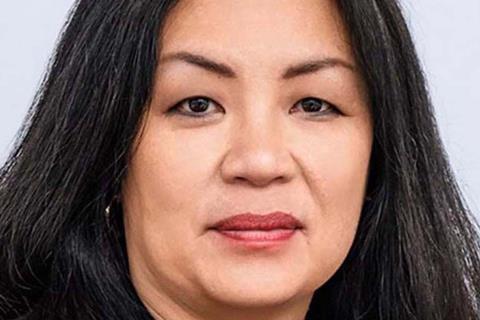
Toronto International Film Festival’s (TIFF) industry conference is evolving. In part because the industry it serves is evolving, but also because of TIFF’s recently announced move to launch an official content market in 2026.
“We are expanding the borders of the industry conference to evolve with the ways that the industry is changing towards a more genre- and platform-agnostic landscape,” says TIFF chief programming officer Anita Lee. As organisers prepare for the market launch in two years’ time, explains Lee, the aim is for the conference “to become a global event, where creative industries intersect across art, entertainment and new experiences”.
The evolution begins with this year’s industry conference programme, which runs September 6-10 and takes in more than 40 sessions across six main strands at the Glenn Gould conference centre, with more than 100 speakers set to participate.
This year’s Visionaries strand, for example, offers a conversation with multi-hyphenate Alfonso Cuaron, the acclaimed feature director/writer/producer/cinematographer whose AppleTV+ series Disclaimer with Cate Blanchett has episodes screening in the Primetime section.
Other Visionaries sessions include on-stage discussions with animated feature writer/director and Pixar chief creative officer Pete Docter, Black List founder Franklin Leonard, Scottish TV writer Steven Moffat and Nobel Peace Prize winner Malala Yousafzai, who, in addition to her work as an activist, serves as executive producer on TIFF Docs world premiere The Last Of The Sea Women.
A number of cross-media and international talents feature in the conference’s Dialogues strand, which offers moderated discussions with directors, screenwriters and producers about their crafts. A session on adaptations, for example, will bring together the teams behind novel-based UK series The Listeners, another Primetime entry, and stage-to-feature transfer The Piano Lesson, which is getting a Special Presentation screening in the festival. Additional sessions will focus on festival films from Latin American creatives, the role of trans and queer artists in front of and behind the camera, and the cinema of Southeast Asia.
A new perspective

This year’s Perspectives strand (for which Screen International is TIFF’s media partner) will look at the state of the industry through panel discussions on topics including theatrical distribution around the world, Indigenous international co-production and sustainable cinema. A session on the future of film journalism will be “a very relevant discussion for us in terms of our identity as a public film festival”, says Lee. “The landscape of [film] journalism is expanding and there are new voices and new influencers.”
The industry partners that have helped shape this year’s Microsessions panel discussions include Canadian government-backed funding and promotion body Telefilm, US-based non-profit The Cinema Foundation (an offshoot of exhibitors trade group the National Association of Theatre Owners) and video-hosting service TikTok. The controversial social-media platform’s session, titled ‘TikTok, redefining fandom’, has particular relevance for a festival with high-profile celebrity galas and a red-carpet fanzone, Lee suggests. It is one of “a few interesting things we’re doing with TikTok this year”, she adds.
The conference’s Spotlights strand provides opportunities for national and regional promotion agencies and industry organisations to present themselves to the festival’s industry attendees. The 2024 line-up includes presentations from Italy, Colombia, Spain, the UK, Poland and Canada. Also part of the strand is the inaugural Gold Pitch filmmaker showcase presented by US-based Asia and Pacific Islander promotional group and equity fund Gold House.
Participants for the conference’s ‘Meet the decision makers’ strand — designed to connect emerging filmmakers with distributors, sales agents, financiers and others — were still being finalised at press time. But according to Lee, the section is expanding this year “anticipating the official content market in 2026. We’re focused on structuring it in a way where the decision-makers will be made more available, with clearer access to industry professionals”.
The evolution that TIFF industry attendees will see in this year’s conference sessions is part of a process that will continue, explains Lee, who oversees TIFF’s programming and industry teams and has credits as a producer on projects including Sarah Polley’s award-winning documentary Stories We Tell.
“We’re seeing it as a phased-in transition,” says the TIFF programmer. “So definitely next year we will see more change. We may also be introducing a new venue next year. We’re looking at shaping everything that we’re doing so that it’s streamlined within a market framework.” ns

























No comments yet